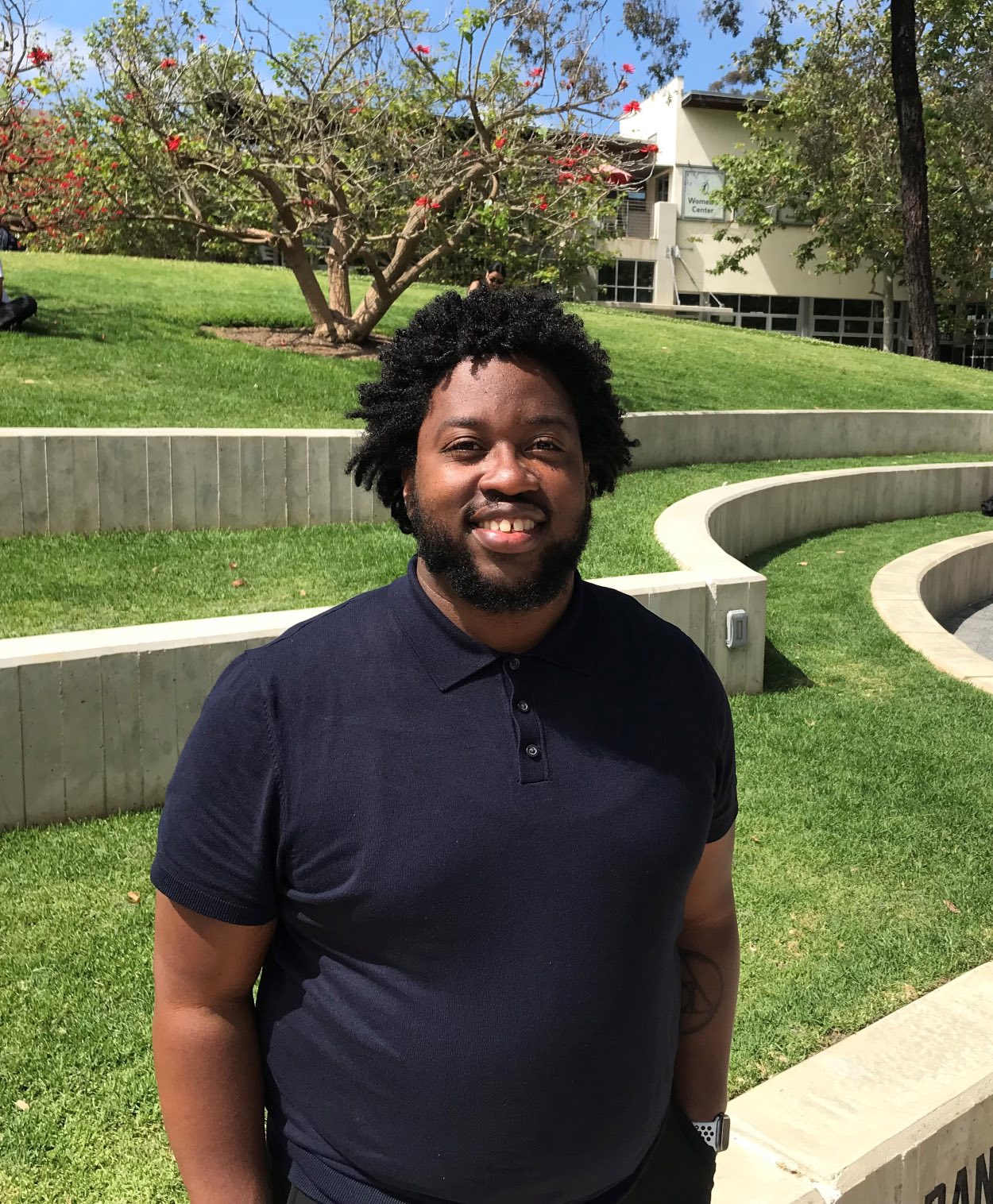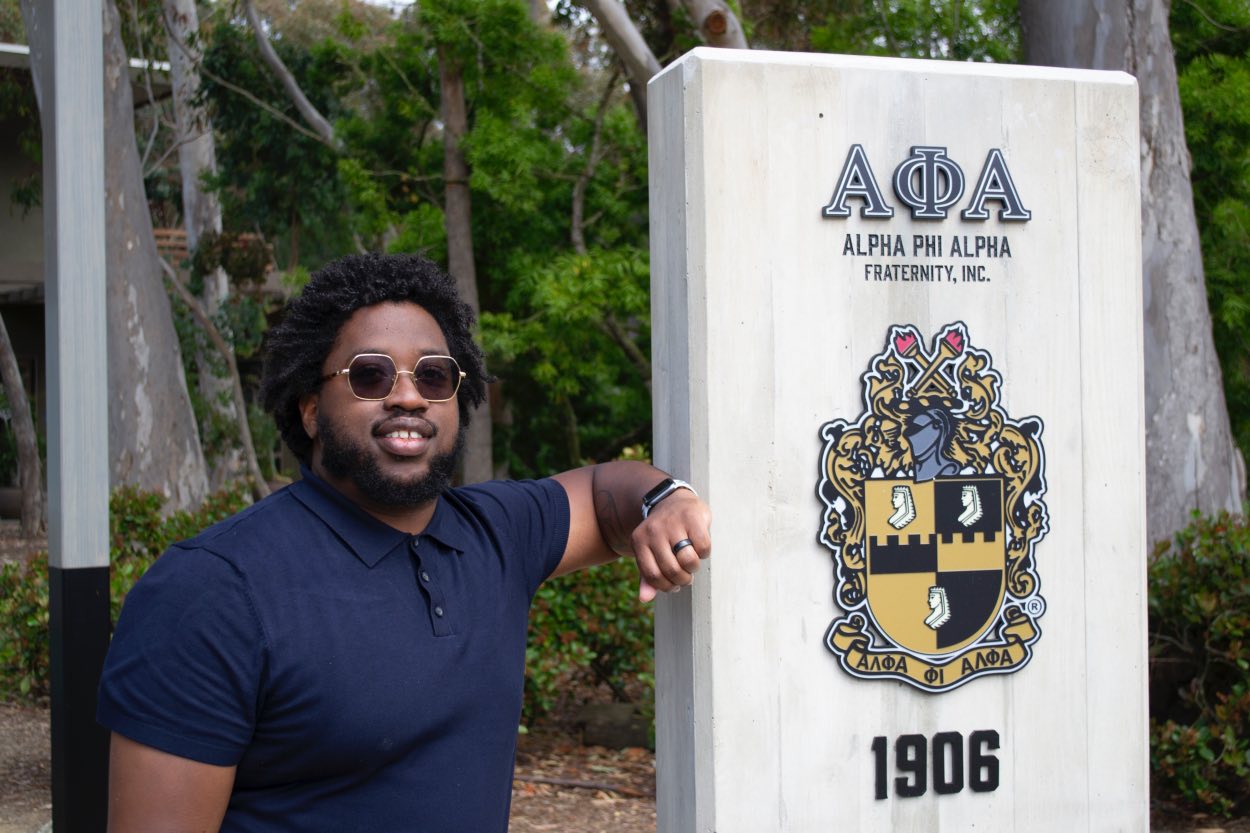Making Connections: Introducing Biological Sciences’ New Diversity Initiatives Director
Torrell Foree strives for inclusivity and connectivity in tandem with academic and research achievement
May 29, 2024
By Mario Aguilera
Torrell Foree appraises the vibrant University of California San Diego campus and marvels at the campus’ growth, thriving academic enterprise and escalating stature as a premier research institution.

Torrell Foree, new director of diversity initiatives for the School of Biological Sciences
Rikako Ono
Yet, none of these accolades or achievements will matter, he believes, unless its community members feel connected.
Foree recently arrived at UC San Diego as the first director of diversity initiatives in the School of Biological Sciences, which consistently ranks among the best in several biology-related fields.
“As Biological Sciences at UC San Diego continues to climb as one of the top programs, I would also like our EDI (equity, diversity and inclusion) initiatives and efforts to be recognized along with those high rankings,” said Foree. “It’s not just that we have the top scientists or the best labs, programs and curricula, but we also have to do the best in making sure that folks feel connected and included.”
For Biological Sciences, Foree’s arrival will help the school re-examine its culture and ensure that EDI is woven into the community’s fabric.
“We were extremely fortunate to recruit Torrell to the School of Biological Sciences,” said Dean Kit Pogliano. “He is the right person coming at the right time to lead our EDI initiatives and level the playing field throughout our school — I look forward to working with him.”
Building Bridges Across Communities
A first-generation student with undergraduate and master’s degrees from California State University Fullerton, Foree is settling into his new role while also taking on another new role: the proud father of a newborn son.
Looking back, the native of Riverside, Calif., defined his career trajectory much later than he expected. Foree’s career plan “B” was to become a high school teacher and basketball coach… but, for many years, plan “A” was missing. His fifth year in college, however, changed everything when a sociology of education course offered Foree a window into a different mindset. Reading the book “Pedagogy of the Oppressed” opened his eyes to new ideas about how education is perceived and delivered. Rather than a one-way information stream, Foree learned that there are more interactive methods of teaching, including reciprocal exchanges with students. He also became aware of perspectives such as efforts to remove bias from traditional educational instruction.
“When you’re studying, especially being mindful of marginalized people, you can’t really take the bias out of our experiences and feelings — and those things matter,” said Foree. “I had never heard about education that way. I began to examine my own educational experiences. In that class I made a decision that I want to work in education.”
Describing himself as a lifelong learner, Foree continued to explore ethnic and gender perspectives while his views on the academic experience blossomed.
“From all of those voices you develop a particular lens on how you see issues and how you interact with people,” said Foree. “While I was acquiring all of this knowledge I was also developing a well of empathy for people.
” Already active in Cal State Fullerton’s African American Resource Center, Foree found his curiosity leading him to learn more about other cultural groups and their viewpoints. In doing so he began to build bridges across communities and gained valuable insight on how connections are established and nurtured. “In wanting to have more of a sense of belonging, I also wanted to make sure that it’s not just the African American Studies students who come to the African American Resource Center and make connections,” said Foree. “If you’re a finance major you should feel the same way.”
These experiences fueled an urgency to help students feel more connected. He created a peer mentoring program focused on the academic experience. Named the “People of Nia” after the fifth principle of Kwanzaa, the new program was established with an inclusivity and connectivity mindset (Nia translates to “purpose” and speaks to the idea that one’s vocation should be connected to personal and community progress). While in the African American Resource Center, students felt supported from a cultural perspective. Foree designed People of Nia to serve a similar purpose in the academic space.
“As UC San Diego continues to gain in academic and research distinction, we also need to accelerate our on-going momentum in integrating equity, diversity and inclusion across all areas of our campus. This is the hallmark of inclusive excellence,” said UC San Diego Vice Chancellor for Equity, Diversity, and Inclusion Becky Petitt. “Torrell Foree’s role in the School of Biological Sciences helps create capacity across the entire UC San Diego enterprise, thereby making us a stronger institution.”
“As part of the School’s IdeaWave Campaign to build a plan for inclusive excellence, we had very strong support for hiring a director of diversity initiatives who could engage with our community and provide the much needed EDI expertise to support our existing EDI programs, develop new ones and evaluate the success of our efforts,” said School of Biological Sciences Associate Dean and Professor James Nieh, the school’s faculty equity advisor.
‘An Opportunity To Do Something Great’

Torrell Foree at UC San Diego's National Pan-Hellenic Council Plaza, a gathering space that honors the legacy of historically Black fraternities and sororities.
Rikako Ono
Foree plans to funnel the lessons of his prior education and work experiences into his new position as director of diversity initiatives. One of his first goals is to help redefine how community members access and acquire information. Without a defined pipeline to events and programs that are happening around the community, people can be left out.
“If I’m a new student and I want to know how to get into research labs, how do I get that information?” asked Foree. “How do we enable a culture in which folks don’t have to seek out this type of information on their own? Rather, we bring it to them.”
He’d also like to re-examine the onboarding process for new community members — whether they are an associate dean or an undergraduate student or a staff member — and standardize how information flows.
He also hopes to bring scientific interests together with personal identities. Being a scientist should come together with who you are — culturally, ethnically — he believes, rather than keeping those worlds apart.
“Historically, the identity work has been outsourced to student affairs or other areas,” says Foree, “but what does that look like within an academic unit, to have those two things merged together?”
Such ideas have helped him define a vision and map goals for EDI in the School of Biological Sciences. Getting buy-in from the community to equity, diversity and inclusion is an urgent priority. And in the years ahead he will shape a new future based on his journey to this point.
“This is a lofty goal but I think in 10, 20 years, I’d like to see us in a place where categories such as race, gender and income cannot be predictors of success,” said Foree. “Right now, when you look at a student’s race and whether they are from a historically marginalized community, you might be able to predict how they are going to do. If we can just eliminate that, I think that would be a great goal. Not just within Biological Sciences but everywhere, when it comes to equity, diversity, inclusion, we don’t have to be scared of making change… We have an opportunity to do something great, something different and change the course. If we can just be a little brave, a little courageous and a little vulnerable, then we can do some dope things.”